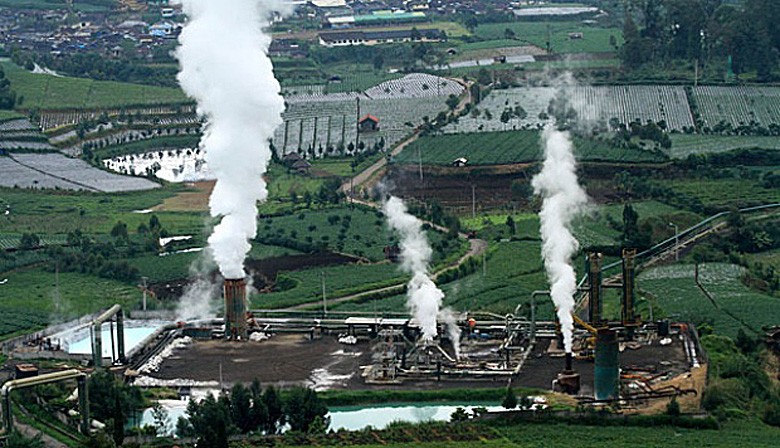Popular Reads
Top Results
Can't find what you're looking for?
View all search resultsPopular Reads
Top Results
Can't find what you're looking for?
View all search resultsActivists call for better geothermal safety after accident
A gas leak at a geothermal power plant in Dieng, Central Java, killed one and injured five on Saturday.
Change text size
Gift Premium Articles
to Anyone
A
ctivists are urging regulators to better enforce workplace safety practices at geothermal power plants after a hydrogen sulfide leak at a plant in Dieng, Central Java, killed and injured employees on Saturday.
State-owned geothermal company PT Geo Dipa Energi (GDE), which operates the plant, said the gas leaked while employees were checking a relief valve in preparation for drilling on well pad number 28.
“One person was killed and five others are in intensive care at the Wonosobo Hospital after the incident. Geo Dipa management and staff express our deepest condolences for the accident. Geo Dipa will also be responsible for all the victims,” said GDE corporate secretary Endang Iswandini.
The company said the process was carried out according to the appropriate standard operating procedures, and all victims were employees working at the site, not residents, as the hydrogen sulfide gas did not escape the location.
“The cause will be determined by an investigation led by the [Energy and Mineral Resources Ministry] renewables inspector. Initial information shows that the cause was equipment malfunction,” she told The Jakarta Post on Monday.
Read also: Indonesia to form ‘world’s largest’ geothermal holding firm
This is not the first time the Dieng geothermal unit has sprung a leak, according to local watchdogs. On June 30, 2007, an explosion at the unit 9 water pipe caused at least 14 employees to suffer serious injuries. Meanwhile, on June 13, 2016, an explosion at well pad 30 caused serious burn injuries to six employees.
Environmental group Mining Advocacy Network (Jatam) activist Ki Bagus Hadi Kusuma in a statement said that recurring accidents in geothermal projects ranged from hydrogen sulfide gas leaks, well and pipe explosions, and mudflows similar to the Lapindo mudflow disaster in East Java.
The Sorik Marapi Geothermal Power site in Mandailing Natal, North Sumatra, for example, saw three accidents in the last two years, according to a statement issued on Sunday by a group of activists, including Jatam, the People's Coalition for the Right to Water (Kruha) and the Semarang Legal Aid Institution (LBH Semarang).
Meanwhile, the Mataloko geothermal project in Flores, Nusa Tenggara Timur, had caused multiple hot mud bursts in the middle of local plantations since 2009, the statement claimed.
Bagus urged the government to stop all geothermal projects across Indonesia, evaluate existing and planned geothermal working areas (WKP) and form an independent team consisting of the National Commission on Human Rights (Komnas HAM), experts and civil society groups to investigate accidents in the projects.
“There are a total of 64 WKP across Indonesia, 22 of which are facing objections from local residents,” said Bagus.
Read also: Low tariffs still hinder geothermal power growth in Indonesia
“[Stakeholders] have to make sure clean energy projects do not neglect environment and community protection,” LBH Semarang activist Cornel Gea said, also on Monday. “LBH Semarang is still coordinating with residents to ensure their safety and security.”
Bagus told the Post on Monday that there had been no meeting with the government or the company “so far" regarding the recent gas leak.
Indonesia, which holds the world’s largest geothermal reserves, is aiming to have a total of 3.35 gigawatts (GW) of geothermal power production capacity by 2030, according to the long-term electricity procurement plan (RUPTL).
Out of a potential total of 23.7 GW in geothermal resources, only 9.2 percent, 2.18 GW, has been utilized, while 1.33 GW has been allocated for expansion plans until 2035, energy ministry data show.










